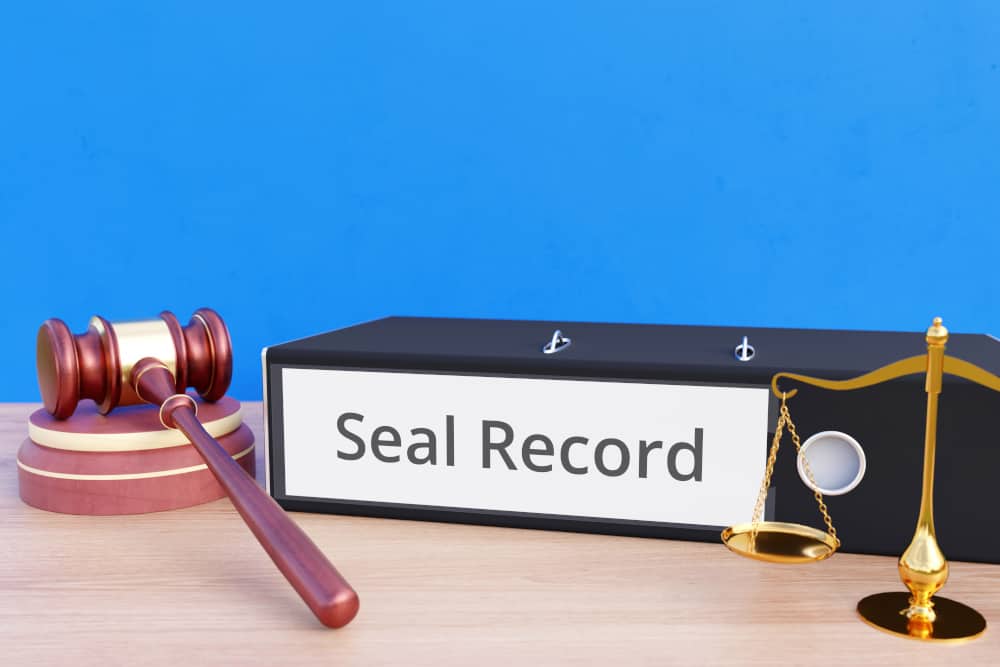If you’ve ever been arrested or convicted for driving under the influence in Texas, you probably already know how much it can follow you. From job applications and housing to insurance rates and even social stigma, that one mistake can linger for years. But there’s good news for many Texans—Texas DUI record sealing might offer a second chance. The law now allows someDUI convictions to be sealed under specific conditions, offering a path toward privacy and redemption.
In this in-depth guide, we’ll break down everything you need to know about Texas DUI record sealing, including who qualifies, how the process works, what it costs, and how it can impact your future. We’ll also include real-world scenarios and practical advice to help you make informed decisions about whether record sealing is right for you or someone you love.
Let’s face it—everyone makes mistakes. The key is knowing how to recover from them and move forward.

What Is Record Sealing in Texas?
It’s Not the Same as Expungement
First things first, let’s clear up a common misconception. Texas DUI record sealing does not erase or destroy your record. That’s what expungement does, and in most DUI cases, expungement isn’t an option unless the charges were dismissed or you were acquitted.
Record sealing, also known as an Order of Nondisclosure, restricts who can see your criminal record. After your record is sealed, it no longer appears on standard background checks used by employers, landlords, or most private agencies. However, some government entities and law enforcement agencies can still access it.
So while it’s not a total wipe, it’s the next best thing—and for many people, it makes a huge difference in day-to-day life.
The Impact of a DUI Record in Texas
Why Record Sealing Matters
A DUI on your record can affect more than your license—it can impact your livelihood, reputation, and future. Here’s how:
- Employment: Many employers won’t hire applicants with recent DUI convictions, especially for roles involving driving, finance, or security clearance.
- Housing: Landlords may deny rental applications when they see a criminal record.
- Education: Some schools or scholarships require a clean record.
- Insurance: Auto insurance rates skyrocket, often staying high for 5 to 10 years.
- Social judgment: It’s unfortunate but real—people make assumptions about others based on criminal records.
For those reasons, Texas DUI record sealing offers more than just legal relief—it provides a fresh start.
Real-Life Story: How Record Sealing Changed One Man’s Future
Michael, a 29-year-old from San Antonio, made the mistake of driving home after a company happy hour. He was pulled over, arrested for DUI, and ended up pleading no contest. Although he completed probation and stayed out of trouble, the DUI showed up on every background check. Job after job turned him down.
Years later, he learned about Texas’s record sealing law. With the help of an attorney, he filed for nondisclosure—and once it was approved, the rejections stopped. He finally landed a position in a tech firm that had previously passed him over.
Michael’s story isn’t unique. Many people don’t realize how much one bad night can haunt them until they try to move forward. That’s why understanding Texas DUI record sealing is so important.
Who Qualifies for Texas DUI Record Sealing?
The Law Changed in 2017—Here’s What It Means
Thanks to Texas Senate Bill 1902, passed in 2017, first-time DUI offenders may now qualify for record sealing under certain conditions. But not everyone is eligible. Here’s a breakdown of the general requirements:
- First DUI offense only
- Blood Alcohol Concentration (BAC) must be under 0.15
- You must have completed all terms of your sentence, including:
- Jail time (if any)
- Probation
- DWI education class
- Community service
- Payment of all fines and fees
- You must wait a specific amount of time after completing your sentence:
- 2 years if you were placed on deferred adjudication and had an ignition interlock device (IID)
- 5 years without an IID requirement

In short, if your DUI case was relatively minor and you’ve stayed out of trouble since, you may be eligible for Texas DUI record sealing.
Who Doesn’t Qualify for DUI Record Sealing?
Know the Limitations Before You Apply
Unfortunately, not all DUI cases are eligible for record sealing. You do not qualify if:
- You’ve been convicted of multiple DUI offenses
- Your DUI involved accidents with injuries or fatalities
- Your BAC was 0.15 or higher
- You were convicted of any violent or sexual offense
- You violated your probation terms
- You committed additional crimes after your DUI
Also, if you served time in state prison—even for a first DUI—you likely won’t qualify.
Understanding these restrictions can save you time and money. That’s why consulting with a qualified attorney is often the smartest first move when pursuing Texas DUI record sealing.
How to Start the Record Sealing Process in Texas
Step-by-Step Guide
If you believe you qualify for DUI record sealing, here’s what the process generally looks like:
1. Verify Your Eligibility
Check your court records and sentencing documents. If you’re unsure, an attorney can help clarify.
2. Obtain a Certified Copy of Your Final Disposition
This is available from the clerk’s office where your case was handled.
3. Draft a Petition for Nondisclosure
This formal document is filed with the court and outlines why you qualify for record sealing.
4. File the Petition
Submit the petition in the same court that originally handled your DUI case. You’ll pay a filing fee, usually ranging from $280 to $350.
5. Attend a Hearing (if required)
Some courts will schedule a hearing to review your petition. Others may rule on paperwork alone.
6. Wait for the Judge’s Decision
If approved, the court will issue an Order of Nondisclosure, and agencies will begin removing your record from public databases.
In many cases, the process takes a few months from start to finish—but the payoff can last a lifetime.

How Much Does It Cost to Seal a DUI Record in Texas?
It’s Not Free—But It’s Worth It
The cost to seal your DUI record includes:
- Attorney fees (optional but recommended): $500 to $1,500
- Court filing fee: $280 to $350
- Certified documents: $10 to $50
All in, most people spend between $700 and $2,000 to complete the process. While that may seem high, consider the long-term benefits—better job opportunities, lower insurance rates, and peace of mind.
When you factor in the cost of having a conviction haunt your life for years, Texas DUI record sealing is often a smart investment.
How Long Does It Take for the Record to Be Sealed?
Patience Pays Off
After the judge signs your Order of Nondisclosure, it typically takes 30 to 90 days for the sealing to be reflected in all systems. That includes:
- Court records
- Criminal background check databases
- Law enforcement systems
- Third-party data aggregators
You’ll receive a copy of the final order, but it’s smart to run your own background check a few months later to confirm the update. If the sealed record still appears, your attorney can take further action to have it corrected.
What Happens After Your Record Is Sealed?
Life Without a Public Criminal Record
Once your DUI record is sealed in Texas, it can no longer be accessed by:
- Employers doing background checks
- Landlords screening tenants
- Private investigators
- Credit reporting agencies
- Most members of the public
However, certain entities can still view your record, including:
- Criminal justice agencies
- Licensing boards (e.g., for lawyers, nurses, teachers)
- Government departments evaluating security clearance
In most everyday situations, though, your record will be invisible. That’s what makes Texas DUI record sealing such a powerful tool for restoring your reputation.
Common Myths About DUI Record Sealing
Let’s Set the Record Straight
Myth #1: “My record disappears completely.”
False. It’s sealed from public view—not erased. Law enforcement and select agencies still have access.
Myth #2: “I don’t need a lawyer to file.”
Technically true, but the process is complex. Errors can lead to denial or delays.
Myth #3: “It happens automatically after I finish probation.”
Nope. You must file a petition—it doesn’t happen on its own.
Myth #4: “Once sealed, no one will ever find out.”
Almost true—but certain government or professional institutions can still see sealed records.
Understanding the truth behind these myths helps you make smarter decisions during the Texas DUI record sealing process.

Real-Life Story: From Stigma to Second Chance
Tasha, a 34-year-old teacher’s assistant in Dallas, was convicted of DUI after a night out celebrating a friend’s birthday. It was her only offense. After completing probation, she tried applying to several school districts—but was consistently rejected.
Eventually, Tasha learned about the nondisclosure law and filed for record sealing. With legal guidance, she navigated the process smoothly. Within six months, she reapplied to the same school district and was hired.
Tasha now advocates for others to explore Texas DUI record sealing and reminds people that one mistake doesn’t have to define your future.
Final Thoughts on Texas DUI Record Sealing: What You Need to Know
If you’ve been carrying the weight of a DUI on your record, you’re not alone—and you’re not out of options. Texas DUI record sealing can help you turn the page and reclaim your future. Whether you’re trying to land a better job, rent an apartment, or simply move on with your life, sealing your record provides privacy, peace of mind, and a fresh start.
But don’t assume you automatically qualify or that the process is easy. It takes effort, attention to detail, and often professional help. Still, for many people, the result is worth every step.
Take action. Ask questions. Get legal advice if needed. Because when it comes to your record, your future is too important to leave in the past.

